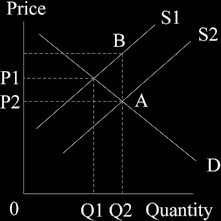| Home | Revision | A-Level | Economics | Why Markets Can Fail | Reason 4 - Merit goods |
Reason 4 - Merit goods
Merit Goods
These are provided by the market - but in smaller amounts than are needed for the good of the state. Health and education are the most obvious ones – there will be some privately-supplied health and education but the state as a whole benefits if everyone has access to them, not just a few. For instance, in the health area, the National Health service and inoculations tend to reduce mass epidemics; the health service also means that fewer people will be off work sick. We see a contemporary example with the dispute over the MMR jab for young children. The fear that it may be linked with autism in children prevents some parents from getting their child injected and there is a fear that an epidemic of measles could emerge as a result. In the case of education, society would not function as well if half the population could not read the instructions on the label!
Private consumers individually value merit goods less than the state does. The market system fails to provide enough merit goods which is why the state steps in to make them more widely available. It does this by subsidising the production of some merit goods or services.
Merit goods may be targetted at certain groups and rationed; for instance, we might limit access to higher education to those passing A levels well! It is assumed that such people are the most intelligent in society. Which of course you are!
In the diagram below, a subsidy equal to AB is applied by the government – this shifts the supply curve downward and to the right. The equilibrium position then moves from P1Q1 to P2Q2. The result is that more is then consumed at the lower price i.e., the demand for merit goods has extended. (I am stressing that the demand has not increased; that would have meant a new demand curve!)
